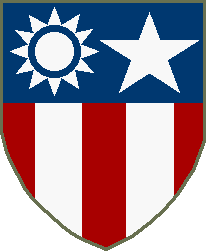

|

|
Lt. LOUIS J. FORSTER 988th Signal Bn. and/or 96th Signal Bn. (Service summary by his son, Bob) By the time the Japanese declared their surrender on August 15, 1945, the Chinese had been living under the brutal Japanese administration for 8 years. A surrender ceremony had been scheduled in Nanking on either the 4th or 5th of September, but as British General Hayes arrived in Nanking on September 3, there were already American soldiers on the ground in Nanking. My dad, Lt. Louis J. Forster, was one of them. My dad had been in theatre since January, 1944. He arrived in India and later joined British, Indian, Gurkha and Chinese troops as they slogged through the jungles of Burma. He was an officer in the U. S. Army Signal Corps and had several assignments in the combat zone, including artillery communications officer, coordinating fire support for troops on the ground, including for British General Francis Festing’s 36th division in addition to General Stilwell’s Chinese troops from June 1944 thru November 1944. He contracted many diseases, including malaria and dysentery and was, for a time, under enemy fire on a daily basis. For that he received the Bronze Star from General “Vinegar Joe” Stillwell. Dad called him “Uncle Joe”. As the Japanese were run out of Northern Burma, he was sent to Bahmo, Burma, and later to Kunming, China over the Ledo and Burma roads, arriving there shortly before the war ended. In late August he received orders to fly to Nanking, still under Japanese administration. Along with him he took the equipment to handle the press traffic for the formal surrender signing ceremony. Arriving in Nanking, the C-54 in which he rode was parked among Japanese planes, including fighters and bombers, on the field. My dad took some pictures of those planes. He set-up the radio station and was in Nanking for about a month, often coming into daily contact with armed Japanese troops. He said, “they seemed docile enough,” but he didn’t make friends. Upon leaving Nanking, my dad flew back to India over the Himalayas, or, as many of the soldiers of that era called it, “The Hump”. It must have left an impression on my dad, since he refused to fly thereafter until my wedding in Honduras in 1973. From there, he returned by troop ship (General M. B. Stewart) to New York.
7 April 1945
CLOSE THIS WINDOW |